
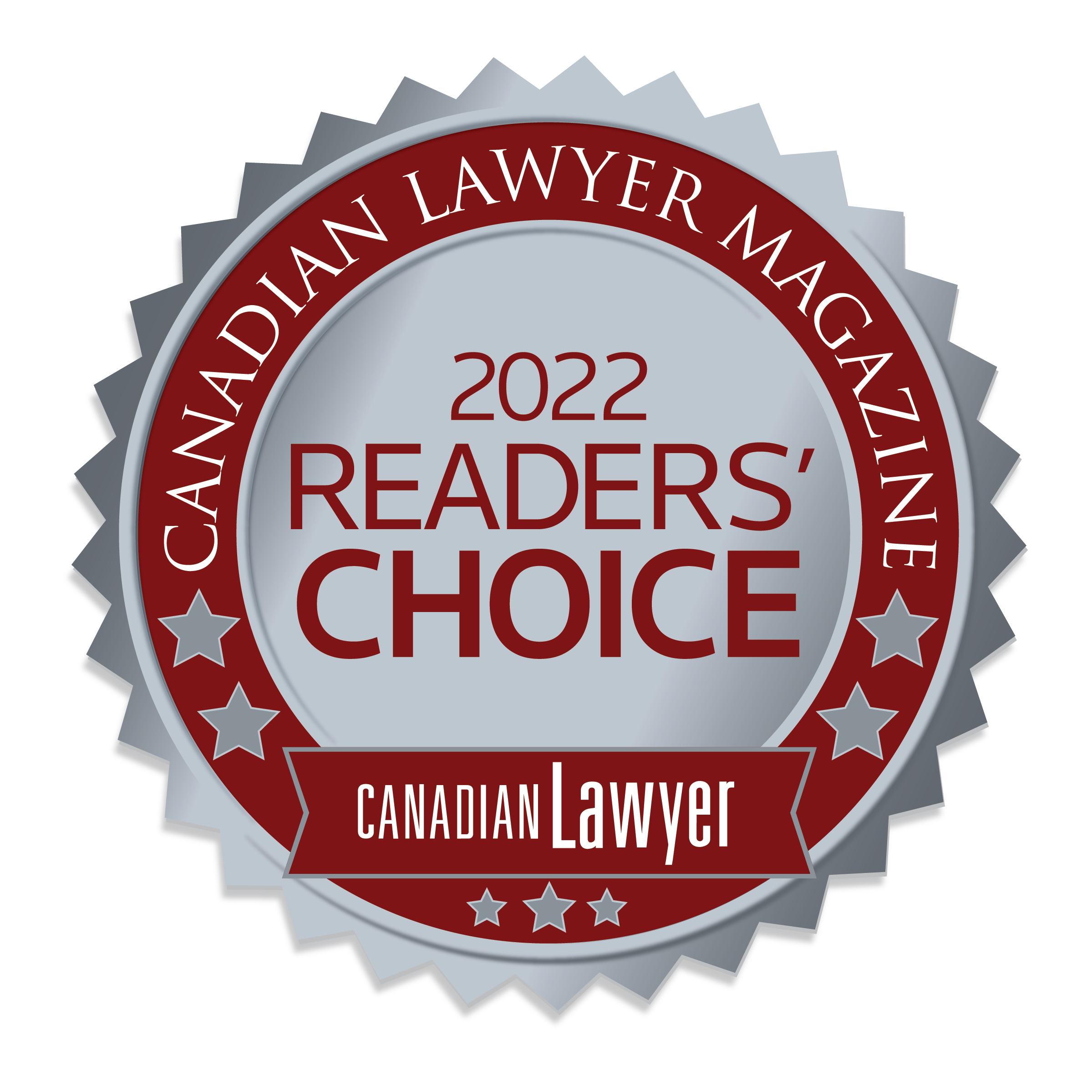
Jump to winners | Jump to methodology
More than ever, the legal profession realizes that to do things more efficiently and profitably, the workflow — whether office-based or remote — must be optimized. That means products should deliver what they are supposed to do, and providers of professional services have to be trustworthy, thorough and reliable. Top of mind for lawyers is making sure their clients are happy and getting the best value for the money they spend.
The vendors that law firms rely on to keep their offices humming are vital to their livelihood, whether it’s a one-lawyer operation or one of the big Bay Street firms. Canadian Lawyer’s annual Readers’ Choice Awards gives privileged insight into which product and service suppliers are recognized as leading the market and earning stellar reputations. Some are long established, trusted providers of services such as arbitration and mediation. Others are start-ups that have taken advantage of technology and the increased desire, post-pandemic, to do things differently. Bespoke products or services are also available to solve problems for specific subsectors of the law. Regardless of what they are offering, all of these suppliers have been deemed the right choice for making the modern law office more efficient.
“When dealing with vendor products, everything has to support the idea of cloud first, digital first, mobility first”
Rob Morris, Borden Ladner Gervais LLP
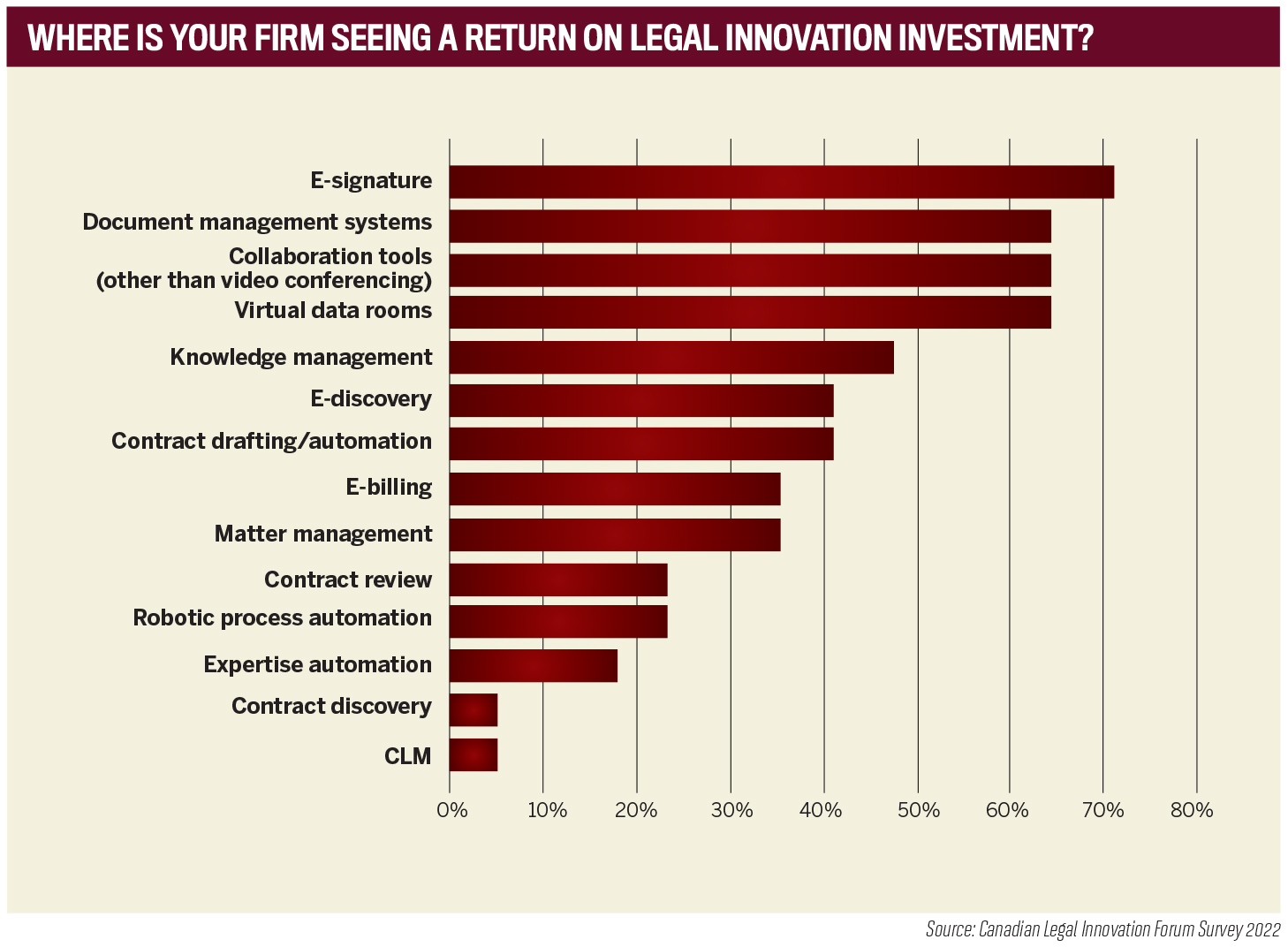
Rob Morris, national chief operating officer at Borden Ladner Gervais LLP, says that more than ever, his role encompasses a “strategic advisor” component, something he also sees at more progressive law firms. “We’re still driving financial performance, but in my case at BLG, we’re using technology as a real driver for change.”
While BLG still goes through the exercise of “bringing vendors in as part of a procurement exercise and testing their products,” especially for big-ticket platforms, there is also a legal tech team that looks for innovative products. “These are the people who are really looking at solutions to particular legal issues that lawyers and paralegals have to deal with,” Morris adds.
And the criteria are tough. “When dealing with vendor products, everything has to support the idea of cloud first, digital first, mobility first,” he says. “One of the first things we ask before we even look at a product is ‘Is it cloud? Will it support our iPad and mobile platforms?’ On top of that, vendor support must be top-notch, with easy access to those who can troubleshoot problems for lawyers who, well, just want to be lawyering.”
“You see the larger firms investing heavily in their innovation functions, including finding specialists to work in-house in different practice areas”
Andrew Bowyer, ADB Insights
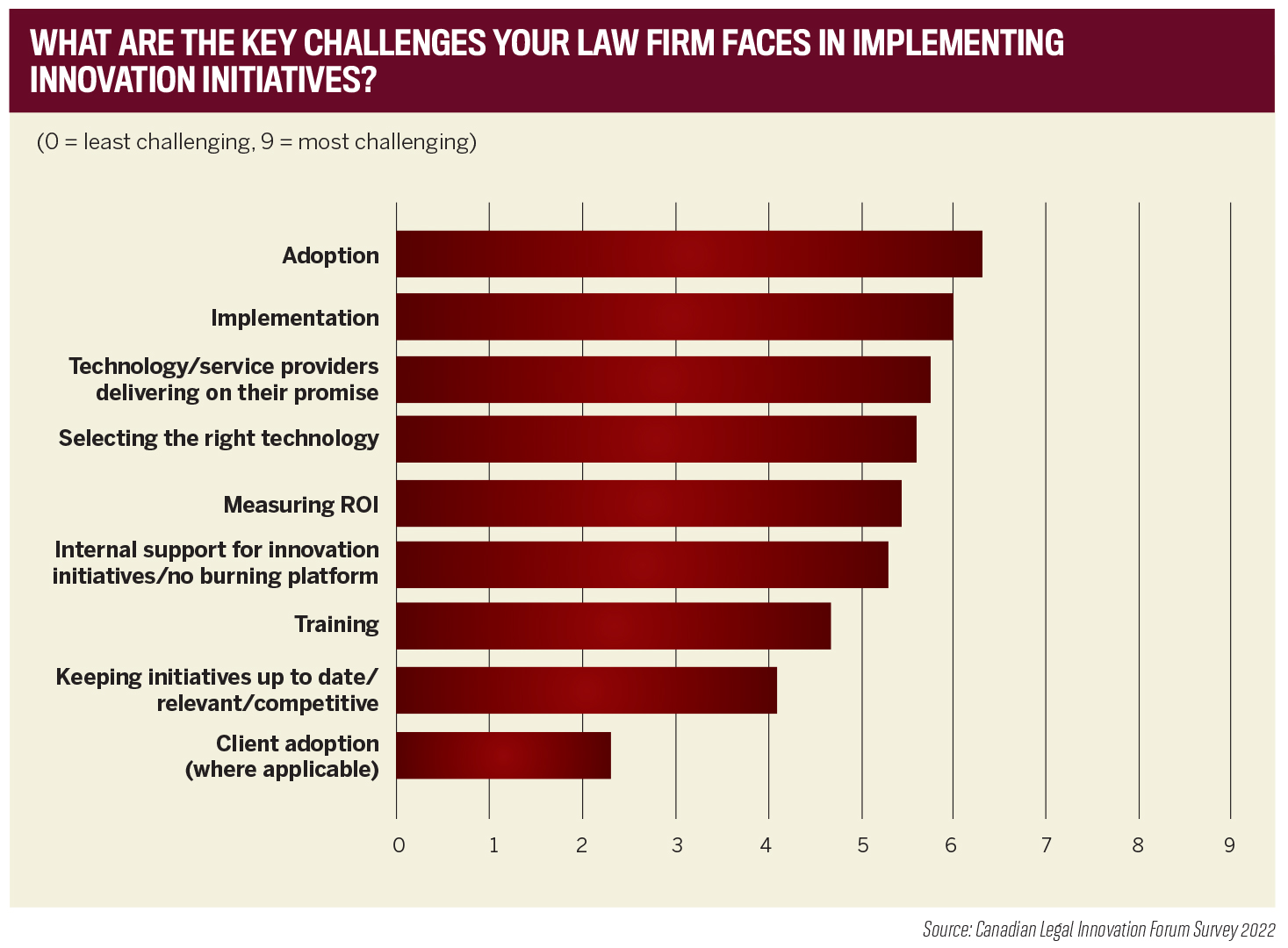
Andrew Bowyer, the founder of ADB Insights, says there’s a “bifurcation” between larger firms and regional or smaller firms regarding vendors and legal technology.
“You see the larger firms investing heavily in their innovation functions, including finding specialists to work in-house in different practice areas,” says Bowyer, whose Toronto-based consulting company focuses on innovation in the professional services sector. It also puts together web-based conferences such as the Canadian Legal Innovation Forum (CANLIF).
The most prominent manifestation of this trend “is the growing head count of these types of specialists that you’re seeing at larger law firms, along with even creating substantial ‘legal ops’ departments.”
At the smaller firms, Bowyer notes the presence of more service providers solving pain points in areas such as family law and estate law. This has led to a lot of innovation, he says. “There’s some really interesting things going on with the small firms when it comes to being creative and smart in their use of vendors.”
However, findings of a CANLIF law firm innovation survey done over the summer of 2022 among decision-makers at 20 leading firms with more than 100 employees revealed some challenges. Bowyer explains how the pandemic propelled the use of technology-driven solutions (video conferencing, e-signature, and document management systems) and accelerated the use of collaboration tools (virtual data rooms and collaboration platforms). More than 85 percent of the firms surveyed had at least one employee in an innovation function.
But even the decision-makers surveyed felt the adoption and implementation of innovation efforts, Bowyer says, and getting the necessary internal support for such initiatives was problematic.
According to the survey, among practice areas benefitting most from innovation, the top-ranked were corporate and commercial, followed by litigation and real estate. Tax, labour and employment, and regulation ranked lowest.
In the case of small and medium-sized firms, one of the issues, says Bowyer, is finding a product at a price point that makes sense for them to use. “For example, a big document management system company would say, ‘you know, we need X number of lawyers in place for it to be worth it for us to sell a subscription to a firm that would make financial sense.’”
“If you think of it, how wills have been drawn up hasn’t really changed in centuries. What we’re doing is trying to change all that”
Jordan Atin, eState Planner
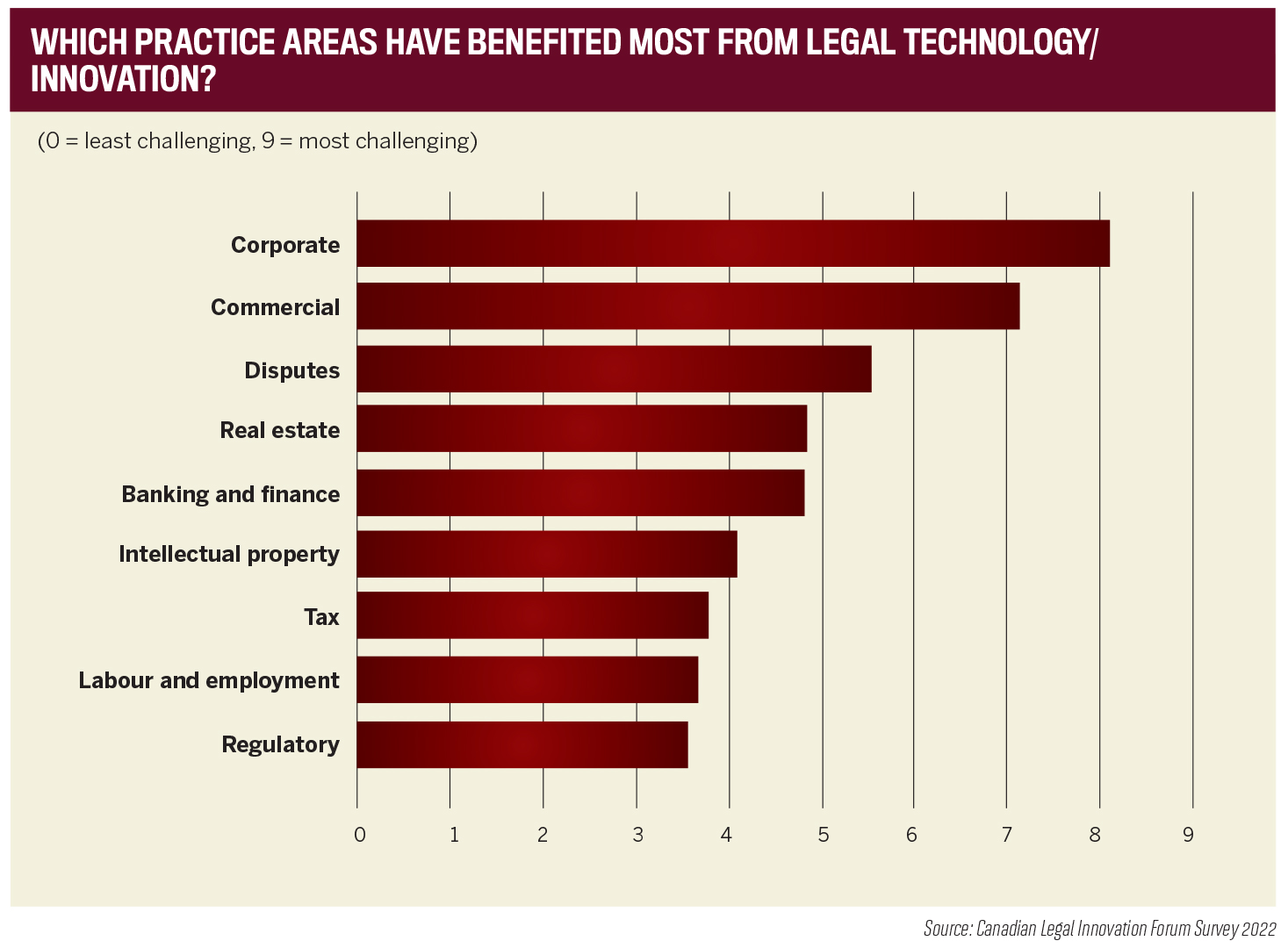
Despite the challenges, vendors are making headway in convincing law firms to adopt new technology that will make them more efficient. One vendor, eState Planner, has been making strides with wills and estate planning software that about 400 law firms are using in Ontario. It is one of the Readers’ Choice award winners in the practice-specific software category for wills, estates and trusts.
“If you think of it, how wills have been drawn up hasn’t really changed in centuries,” says Jordan Atin, a wills and estates lawyer at Hull & Hull who created eState Planner with colleague Ian Hull. “What we’re doing is trying to change all that.” As a lawyer who works in the practice area, Atin says he knows the pressure points that his colleagues face regarding wills.
eState Planner digitizes the process where a lawyer meets with a client, collects data on their family and assets, devises a plan and prepares documents. The tool also serves as a “second set of eyes” by showing the client and lawyer the impact of certain decisions by constantly analyzing the data and producing reminders, such as planning opportunities and tax ramifications. It then generates wills, powers of attorney and reporting letters based on the data entered into the software.
Another Readers’ Choice award winner, in the public record searches and filing category, is Lormit Legal Support Solutions, formerly Lormit Personal Services. Based in Calgary and with franchise offices nationwide, the firm was established in 1979, offering services such as process serving, remote or mobile signing, court filings and services, private investigations and occupancy checks.
While this type of vendor has long been in place, Lormit president Patrick Romaniuk says his company has upped its game by developing an operating system that allows clients to track Lormit’s efforts in filing and delivering documents. “They know when attempts were made, what happened, and it’s all in real time and done through a secure web link.”
He says this real-time aspect is what firms want. “Information is what our legal clients need so that they can communicate with their own clients about where things stand. It’s all about reliability and transparency.”
“There has been enough experience now to show that settlement rates for mediations done via Zoom are no different than settlement rates from in-person meetings”
Allan Stitt, ADR Chambers
For decades, alternative dispute resolution services such as arbitration and mediation have been helping clients settle disputes without having the matter tried by a judge. However, Allan Stitt, president and CEO of Toronto-based ADR Chambers, one of the winners in the Readers’ Choice ADR Mediation Chambers category, says things have changed drastically since the COVID-19 pandemic.
“We still have facilities to conduct mediation sessions in person,” says Stitt. “We can certainly accommodate that. But the reality is mediators are going wherever the parties want them to go.”
He explains that the pandemic has fundamentally changed the way mediation sessions are conducted, and even though people may feel more comfortable getting together in person, the convenience of virtual hearings speaks loudly.
“There has been enough experience now to show that settlement rates for mediations done via Zoom are no different than settlement rates from in-person meetings,” he adds. And while there may be pros and cons, the convenience and lesser expense of remote hearings are driving factors to go virtual.
What’s more, for ADR Chambers, Stitt says the ability to offer mediators from almost anywhere has only enhanced the firm’s reputation as one of the largest private alternative dispute resolution services in the world, administering over 55,000 mediations and arbitrations since 2012.
“People come to us because they know we have a roster of experienced and knowledgeable people,” he says, “or they know we have a particular mediator that they want to use.” The growing comfort level with remote hearings means that ADR Chambers can draw from an even bigger pool of world-class mediators.
“Part of my role is to go through the many calls I get from people who want to join ADR chambers and vet them to make sure they are the best people out there,” Stitt adds.
In the 2022 Readers’ Choice awards, Canadian Lawyer once again recognizes outstanding products and services related to the legal sector. From July 11 to August 5, Canadian Lawyer’s research team surveyed the magazine’s readers and gathered thousands of votes from them.
The ballot consisted of categories encompassing areas such as ADR mediation chambers, financial services and consultation, legal research, legal technology, litigation support and consulting, recruiting, staffing and outsourcing, and real estate.
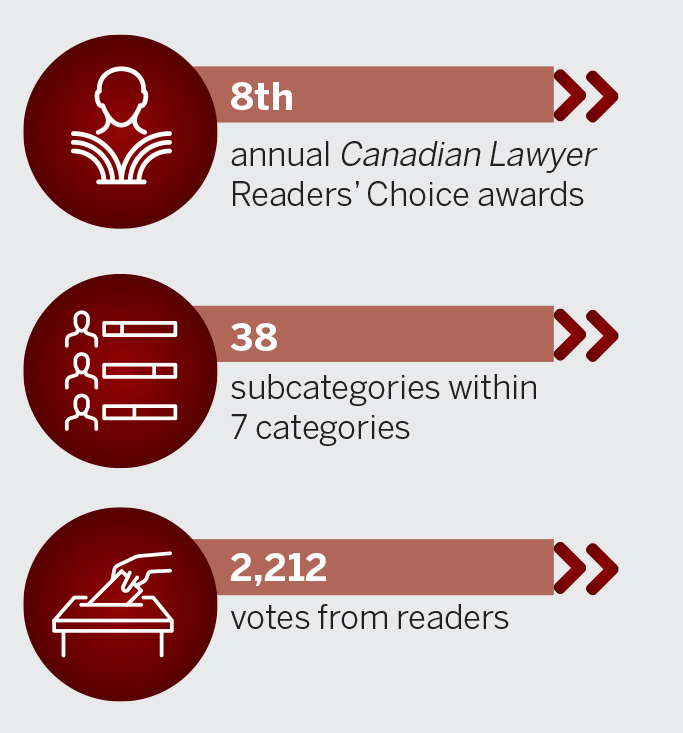 In total, 567 product and service providers were listed on the ballot. Voters could also write-in any businesses not listed. The team has named the top three vote-getters in each category and listed them in alphabetical order. Categories with more than three winners indicate a tie.
In total, 567 product and service providers were listed on the ballot. Voters could also write-in any businesses not listed. The team has named the top three vote-getters in each category and listed them in alphabetical order. Categories with more than three winners indicate a tie.
Canadian Lawyer thanks the participants for sharing their thoughts, which are presented in this special report. If you do not see your favourite business recognized, please be sure to vote next year.